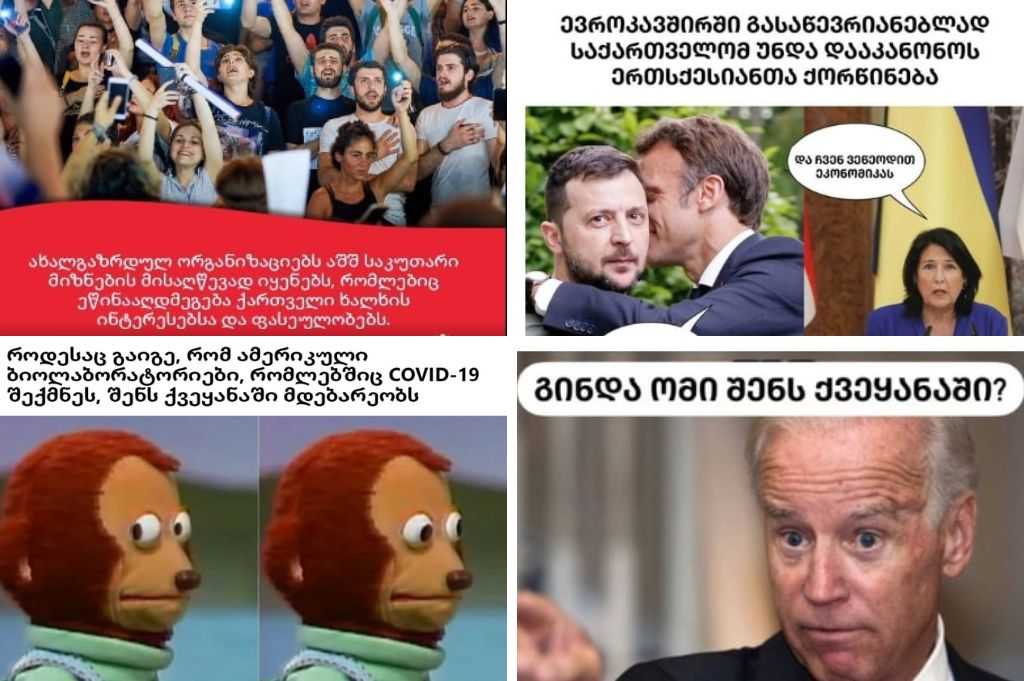
On Friday and Saturday, Facebook took down posts from media, civil society, and individuals in Georgia, seemingly targeting posts that showed the government in a bad light.
Online media Mtis Ambebi on Saturday reported that more than 100 posts had been removed from their Facebook page, with the process taking place over around an hour that day.
‘Our investigative films and critical whistleblower materials covering the Shovi tragedy, Chiatura ecological disaster, occupation of Racha forests, Balda Canyon, corruption within the Protected Areas Agency, and other vital topics were unexpectedly deleted from our Facebook page’, the statement noted. They added that they were investigating the ‘alarming development’ and preparing a response.
Facebook users also confirmed that their posts sharing Mtis Ambebi content, particularly mentioning the Shovi tragedy or Gela Mtivlishvili, the outlet’s editor, had been taken down.
The accompanying messages claimed that the posts had been removed for violating Facebook’s community standards on cybersecurity, and because it appeared that the social media users were attempting to ‘collect sensitive information from others’.

On Friday, the head of the civil society organisation Georgian Court Watch, Nazi Janezashvili, wrote on Facebook that both posts from her organisation’s page and posts in other groups that featured the name of her organisation had been removed.
‘Yesterday, they deleted about 60 of our posts’, said Janezashvili. ‘Some articles were written in 2022. Facebook cites cyber security as the reason’.
She added that she was unable to publish posts featuring a link to her organisation’s website. A number of users similarly reported that they were unable to publish posts tagging various civil society and media organisations.
On Monday, Janezashvili wrote that the posts had been restored that morning.
‘Since Friday we have been in intensive communication with Meta trying to resolve this issue’, she wrote.
‘Scum’ for Shovi tragedy coverage
Mtis Ambebi has been the target of frequent criticism from members of the ruling Georgian Dream party, particularly for its coverage of the Shovi mudslides.
In August 2023, at least 33 people died in a mudslide that destroyed the mountain town.
[Listen to podcast: Podcast | Shovi: an avoidable tragedy?]
Then chair of the ruling party and current Prime Minister, Irakli Kobakhidze, at the time called the founder and editor of the publication, Gela Mtivlishvili, ‘scum’ for the outlet’s coverage of the tragedy.
Parliamentary speaker Shalva Papuashvili later criticised the inclusion of the outlet’s Shovi investigation in an EU media competition.
Gela Mtivlishvili and his outlet have also been critical of Georgia’s foreign agent law, and the government’s attitude towards protesters and critics.
Mtivlishvili told Netgazeti that the outlet had appealed to Meta’s support services, and were waiting for a response.
Georgian media and civil society activists have suggested that the mass blocking of posts may be the result of a large-scale reporting campaign. Some users have successfully appealed to Facebook’s support services and had their posts restored. The posts of Mtis Ambebi remain inaccessible.
OC Media reached out to Facebook for comment, but had not received a response at the time of publication.






